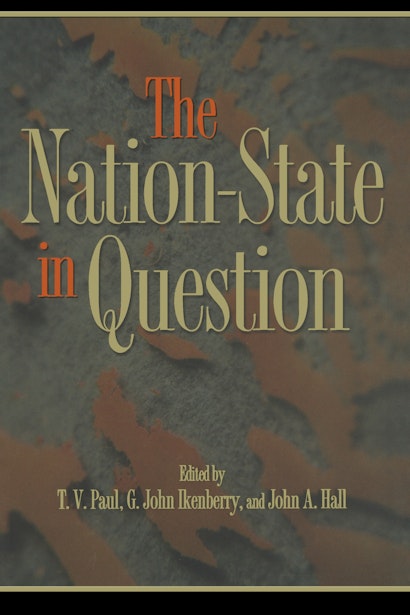Has globalization forever undermined the state as the mighty guarantor of public welfare and security? In the 1990s, the prevailing and even hopeful view was that it had. The euphoria did not last long. Today the “return of the state” is increasingly being discussed as a desirable reality. This book is the first to bring together a group of prominent scholars from comparative politics, international relations, and sociology to systematically reassess—through a historical lens that moves beyond the standard focus on the West—state-society relations and state power at the dawn of the twenty-first century.
The contributors examine the sources and forms of state power in light of a range of welfare and security needs in order to tell us what states can do today. They assess the extent to which international social forces affect states, and the capacity of states to adapt in specific issue areas. Their striking conclusion is that states have continued to be pivotal in diverse areas such as nationalism, national security, multiculturalism, taxation, and industrial relations. Offering rich insights on the changing contours of state power, The Nation-State in Question will be of interest to social scientists, students, and policymakers alike. John Hall’s introduction is followed by chapters by Peter Baldwin, John Campbell, Francesco Duina, Grzegorz Ekiert, Jeffrey Herbst, Christopher Hood, Anatoly Khazanov, Brendan O’Leary, T. V. Paul, Bernard Yack, Rudra Sil, and Minxin Pei. The conclusion is by John Ikenberry.
T. V. Paul, Professor of Political Science at McGill University, has published six books including India in the World Order. G. John Ikenberry, Peter F. Krogh Professor of Geopolitics and Global Justice at Georgetown University, is the author of After Victory (Princeton), which received the Robert L. Jervis and Paul W. Schroeder Prize for 2002 from the American Political Science Association as the best book in the area of international history and politics. John Hall is James McGill Professor of Sociology at McGill University. His books include Is America Breaking Apart? (Princeton).
"This impressive volume brings together political scientists and sociologists to assess what effects globalization has had on the state . . . backed up by an unusually comprehensive collection of historical and comparative research on economic and security issues in the advanced industrial and developing worlds."—Sheri Berman, Foreign Affairs
"The collection's unifying theme is . . . the importance of nation-states within a context of globalization. This, apart from the merit of its individual contributions, is a major reason to welcome the publication of this fine edited collection."—Daniel Chernilo, Contemporary Sociology
"The Nation-State in Question is an important addition to a growing literature critical of the view that unrelenting globalization has begun to limit state authority across a series of domains and might ultimately lead to the withering away to the state. The contributors to the book are unanimous in their view that the state has been the central organizational expression of modernity, and will continue be the dominant form of political organization for the foreseeable future."—Richard Ned Lebow, International History Review
"The Nation State in Question is an excellent book that I would recommend to all students of contemporary politics. In particular, I would like to see students of globalization read this collection. . . . The essays in this volume are original and interesting."—Paul Hamilton, International Journal
"The book brings together a very capable group of scholars from the fields of international relations and comparative politics. . . .[T]he principal contribution of this volume, which deserves a wide readership, lies in the combination of theoretical insight and in-depth analysis of policy areas."—Malte Pehl, Journal of Peace Research
"Well written and well organized, this book reflects sound scholarship. I applaud the initiative of the editors to assemble such an eclectic collection that will be highly useful for those wishing to cross disciplinary boundaries. Moreover, the essays tend to avoid the disciplinary jargon that often limits a readership to a narrow academic audience."—Bruce Cronin, University of Wisconsin, author of Community Under Anarchy
"Each of the chapters is soundly written and the volume as a whole brings together some outstanding, well recognized scholars to undertake an ambitious, wide-ranging enterprise."—Hendrik Spruyt, Arizona State University, author of The Sovereign State and Its Competitors



